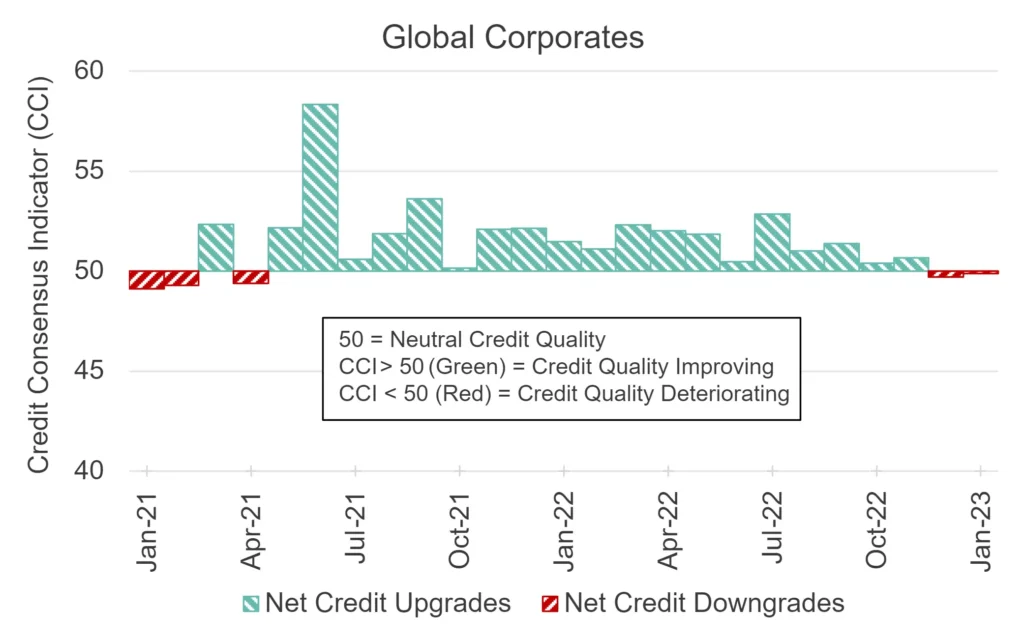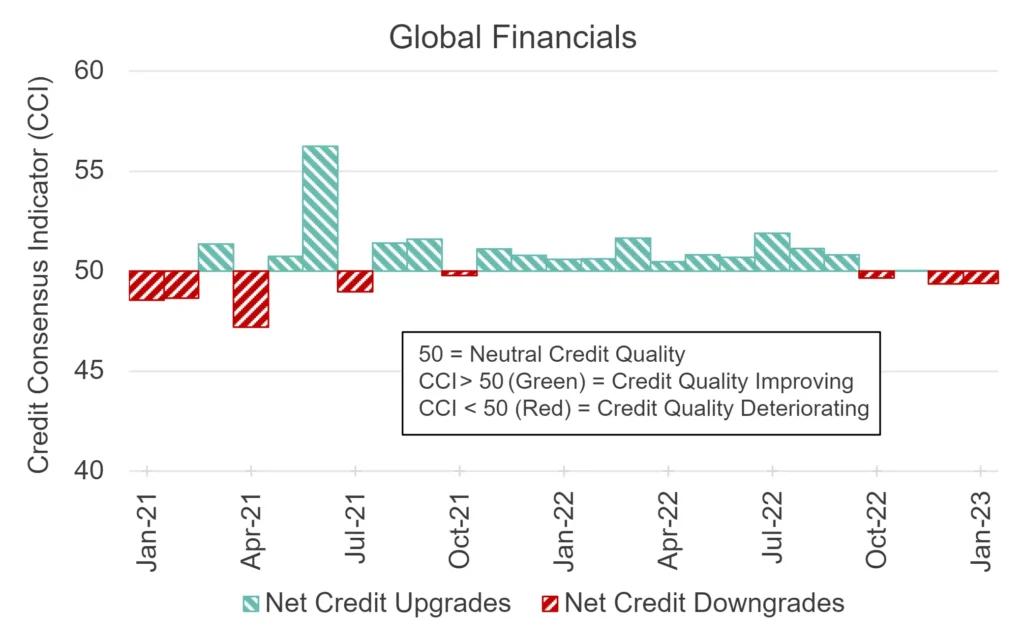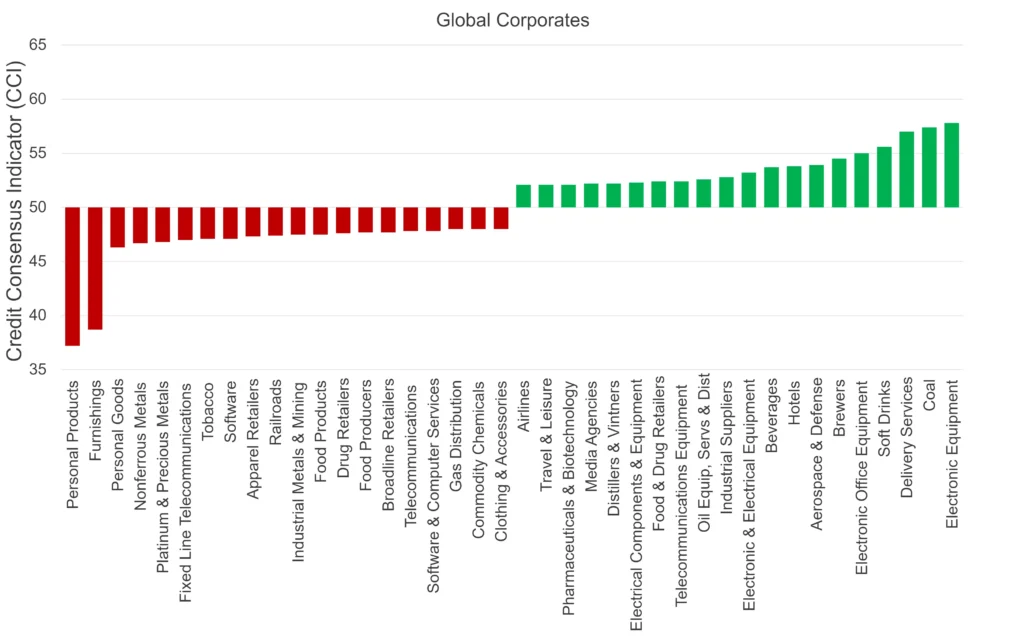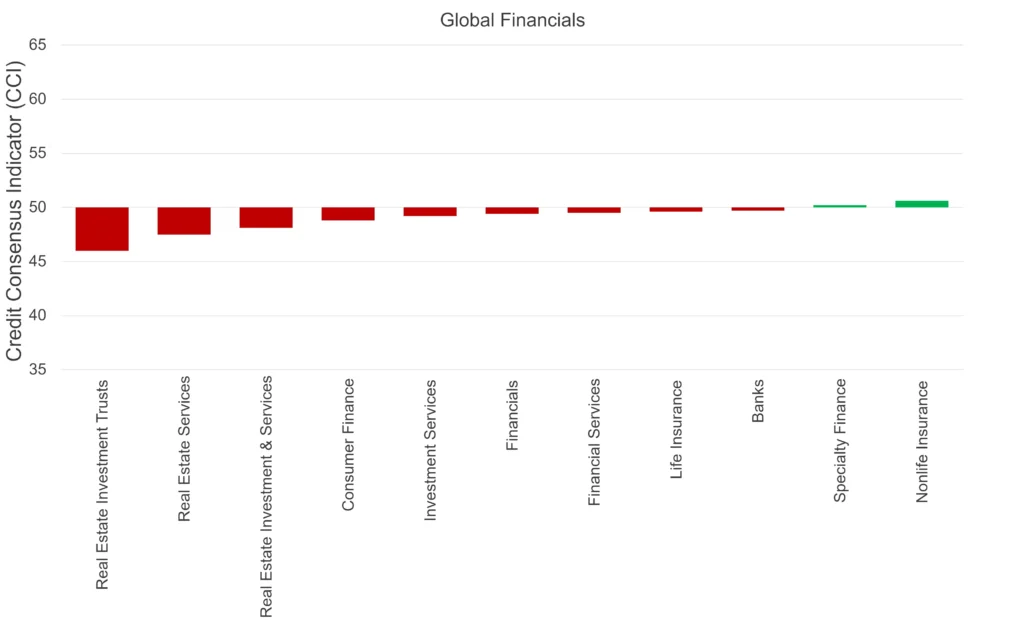Global Corporates have returned to a negative credit balance, ending their 19-month positive run. This month Global Corporates recorded their second consecutive negative Credit Consensus Indicator1 (CCI).
Global Financials have now had four months without a positive credit balance.
Detailed consensus credit data is available on Bloomberg or via the CB Web App, covering many otherwise unrated companies. To arrange a demo of all single name and aggregate data detailed in this report, please request this by sending us an email.


More CCI industry graphs can be found within Credit Benchmark’s monthly CCI Monitors.
This negative shift is being driven by a number of Global Sectors.
The charts below plot the latest CCI (Jan-23) for various Global Sectors.

Soaring food and energy prices have hit consumer purchases of personal goods, personal products, and home furnishings; retailers are also suffering.
Delivery Services, Coal and Electronic Equipment are still strongly positive, but metal sectors are also turning negative.
The chart below shows details for various financial sectors.

Real Estate is the major negative. Some REITs subsectors started to show negative trends a few months ago, but this has now spread to most REITs categories.
Speciality Finance and Nonlife Insurance are now the only financial sectors with a positive credit balance.
For more detail on recent credit trends and highlights seen in the consensus dataset please keep an eye out for our monthly outlook next week.
[1] The CCI is an index of forward-looking credit opinions based on the consensus views of over 20,000 credit analysts at 40+ of the world’s leading financial institutions.
Drawn from more than 950,000 contributed credit observations, the CCI tracks the total number of upgrades and downgrades made each month by credit analysts to chart the long-term trend in analyst sentiment. A monthly CCI score of 50 indicates neutral credit quality, with an equal number of upgrades and downgrades made over the course of a month. Scores above 50 indicate that credit quality is improving. Scores below 50 indicate that credit quality is deteriorating.
